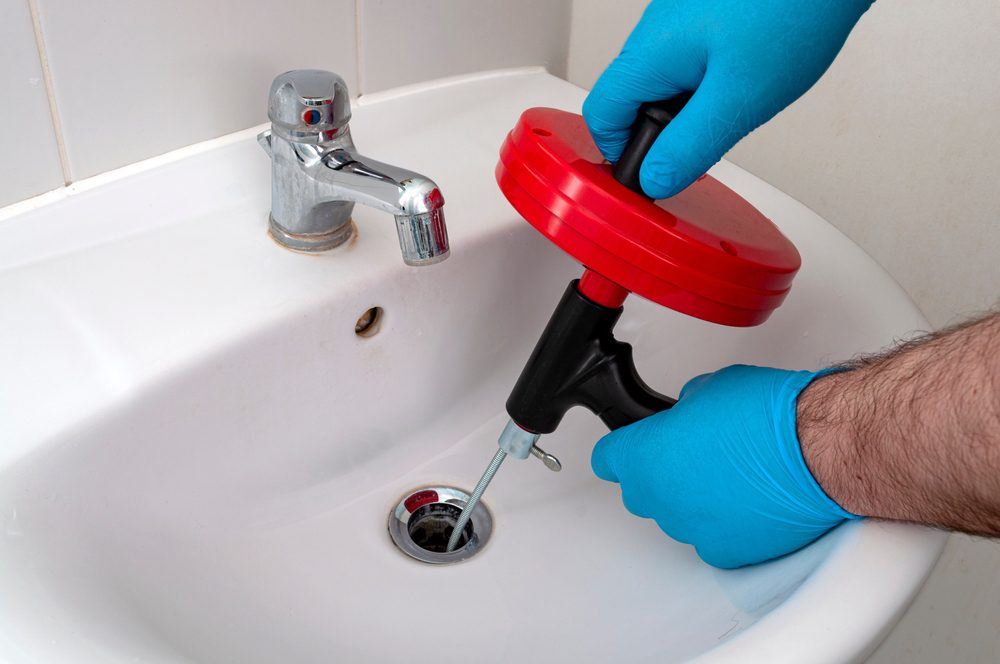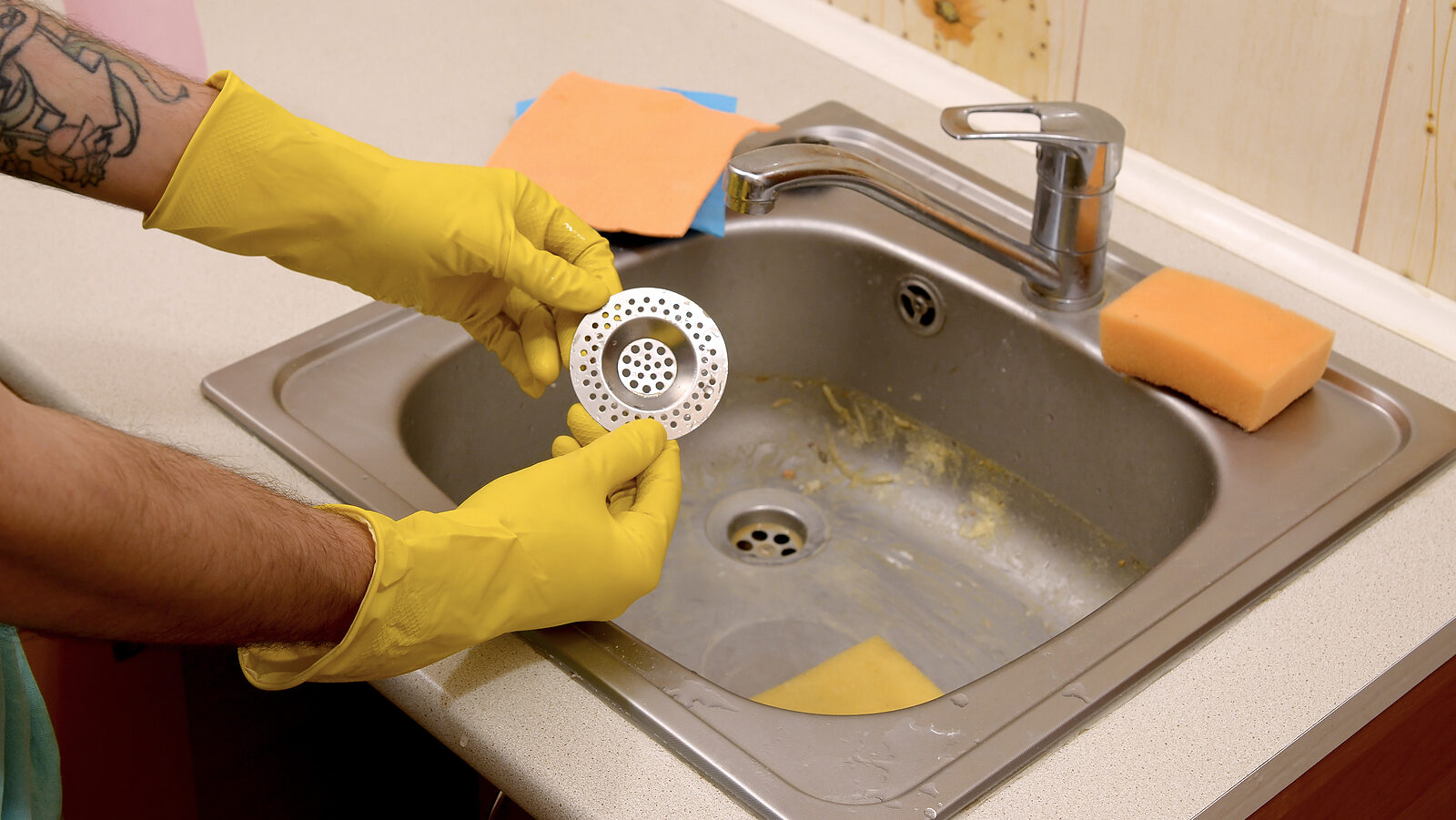How to Handle a Blocked Drain Prior to Seeking Expert Help
How to Handle a Blocked Drain Prior to Seeking Expert Help
Blog Article
We've found this post involving What I learned from trying to deal with a clogged drain listed below on the web and figured it made good sense to share it with you on this page.

Intro
Handling a blocked drainpipe can be a discouraging experience, interfering with everyday activities and potentially creating damages to your building. However, before connecting to plumbing experts, there are actions you can take to deal with the issue yourself. In this overview, we'll discover do it yourself remedies and preventive measures to take on a blocked drainpipe effectively.
Recognizing the Problem
The very first step in resolving an obstructed drainpipe is acknowledging the signs. Slow-moving drain, gurgling audios, foul odors originating from drains pipes, or water support up are common signs of a blocked drainpipe. Recognizing these signs early can assist protect against even more difficulties.
Choosing the Right Pipes Solution
When picking a pipes service, consider elements such as experience, licensing, and consumer evaluations. Choose a trustworthy plumbing with a record of quality workmanship and clear rates practices.
Price Considerations
The cost of expert drainpipe cleaning services can differ depending on the seriousness of the clog and the plumbing professional's rates. Request quotes from multiple service providers and ask about any type of surcharges to make certain transparency and prevent surprises.
Safety Precautions
When trying do it yourself drain cleaning, focus on security. Wear safety handwear covers and glasses to prevent contact with damaging chemicals or germs. Never mix various drainpipe cleaning items, as this can generate dangerous fumes.
Situation Studies
Real-life instances illustrate the effectiveness of DIY solutions and the value of timely expert treatment in dealing with drainpipe clogs.
Typical Reasons For Obstructed Drains
Understanding the aspects that contribute to drain clogs is essential for efficient resolution. Typical perpetrators consist of hair, soap residue, oil, food particles, and foreign items like sanitary items or paper towels. Tree roots invading underground pipes can likewise trigger considerable blockages.
Do it yourself Solutions
For small clogs, numerous DIY options can be effective. Pouring boiling water down the drain can help liquify oil and debris. Baking soda and vinegar or a blend of salt and cooking soda can serve as natural cleaners. Making use of a plunger or plumbing snake to remove obstructions is another alternative.
Devices and Tools
Having the right tools handy can make DIY drainpipe cleaning up more effective. A plunger is a functional device for getting rid of obstructions in sinks, commodes, and showers. A plumbing snake or auger can reach much deeper clogs, while drain cleansing chemicals can be made use of cautiously for stubborn blockages.
Preventive Measures
To prevent future clogs, taking on safety nets is essential. Install drainpipe guards or strainers to catch hair and debris before they get in the pipelines. Consistently flush drains with warm water to liquify grease build-up, and stay clear of dealing with oil or solid waste away.
When to Call a Specialist
While DIY services can resolve minor clogs, particular signs indicate the need for specialist assistance. Persistent clogs, foul odors regardless of cleaning initiatives, or numerous drains pipes backing up all at once are red flags that necessitate experienced intervention.
Final thought
By following the ideas described in this guide, you can effectively take on obstructed drains and protect against future plumbing problems. Whether choosing DIY solutions or seeking expert support, prompt activity is essential to keeping a healthy and balanced plumbing system and protecting the stability of your home.
How to Clear a Clogged Drain Yourself (And When to Call In the Professionals)
What Can Clog a Drain
Dirt Skin flakes Hair Grease Soap scum Food Offset pipes Tree roots Small objects Mineral buildup DIY Tricks to Unclog a Drain
You can fix this! Once you have identified the source of the clog (or have a vague idea), you can try one or a combination of these fixes in order to clear your plumbing.
Wire Hanger or Snake
Untangle and clear out hair from a drainpipe with a homemade snake. Use a straightened-out wire hanger with a 90-degree angle hook to locate the clog and drag out any unwanted material.
Remember not to push the clog further down to where the wire hanger cannot reach! If you need to follow up with a plunger, give it a try. Your efforts might be more successful after it’s been wire-snaked.
If you want to get fancy and don’t have a wire hanger to spare, head to the store and pick up a hand-operated drain snake. You can get one for $10-$30. It may save you the hassle, and provide additional length to reach deep into the clogged pipe.
Plunger
A cup plunger has a suction cup attached to a wooden handle. The rubber creates a seal around the drain, and increases the pressure force of the plunger.
Plunge for 30-second increments to loosen the clog. This may need to be repeated over the course of 15-20 minutes. Once plunged, run the water to flush the remaining material out of the drain.
Remember– never use a plunger if you have used a chemical drain cleaner. These chemicals can splash up from the force of the plunger and cause serious injury or burns.
Boiling Water
Hot water can sometimes break up materials into a flushable amount. Dirt, grease, and soap buildup requires heat in order to unstick from surfaces.
Take your kitchen kettle and heat your water to a boil. Once it reaches a rolling boil, pour it directly down the drain into the blockage. Carefully follow with plunging, if necessary.
Don’t worry if this takes more than one try! It can often take multiple kettles and repeated plunging in order to clear a particularly stubborn clog.
Chemical Drain Cleaner
As a last resort, pick up a bottle of chemical drain cleaner. Drain-cleaning chemicals are potent, and not very good for the environment.
You may need to wear protective eyewear in gloves before handling your bottle of chemical drain cleaner. Follow the instructions printed on the bottle, and flush with water as soon as the instructions allow. Do not follow with plunging.
Baking Soda and Vinegar
As a safer alternative to chemical drain cleaner, baking soda and vinegar can create a chemical reaction that clears tough clogs.
Combine one cup of cleaning vinegar with one cup of boiling water, and set aside. Once you have done this, pour half a cup of baking soda down the drain. Give the baking thirty seconds to settle and cover a large portion of the problem drain.
Following the baking soda, pour down your vinegar and hot water solution. Once the vinegar and baking soda combine, the mixture will bubble and fix. Let this reaction fizzle in the drain for about an hour.
After an hour, follow with a kettle’s worth of hot water. The heat and liquid should flush out any remaining material.
When to Call a Plumber
If your DIY attempts haven’t cleared your clog drain, it’s time to call in a professional. It’s not worth losing access to your kitchen sink or high-traffic bathroom. A clog in a vital area can keep you from the things you’d rather be doing, and derail your routine.
Anytime a clog is causing water to spread is a time to call in a plumbing service. What starts out as a little bit of water can quickly grow into serious, expensive water damage.
Additionally, a serious clog can result in burst pipes or serious leaks. Make sure you know when to take it seriously!
https://myguysnow.com/how-to-clear-a-clogged-drain-yourself-and-when-to-call-in-the-professionals/

Do you appreciate reading up on How to handle a clogged drain in your home? Try to leave a remark below. We will be glad to hear your opinions about this blog posting. We hope to see you back again in the near future. For those who appreciated our blog posting plz remember to pass it around. Thanks so much for going through it.
Book Report this page